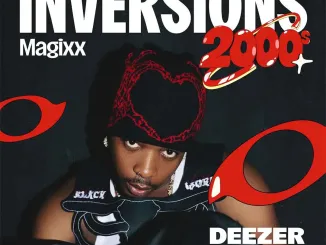G ermany’s political landscape is set for a dramatic shift as the country gears up for a snap national election. Following the collapse of Olaf Scholz’s “traffic light” coalition, the Bundestag is now up for grabs. With Friedrich Merz’s CDU/CSU leading the race, the far-right AfD emerging as a disruptive force, and Scholz’s SPD struggling to maintain relevance, the stakes have never been higher. Immigration and economic instability dominate the campaign, shaping the future of Europe’s largest economy.
 |
| Tech billionaire Elon Musk speaks via a video transmission during the election campaign launch rally of the far-right Alternative for Germany party |
Campaign Recap: A Tumultuous Lead-Up
This election has been anything but conventional. The crisis began in November when Scholz dismissed his finance minister, Christian Lindner, triggering the downfall of the SPD-Green-FDP coalition. A no-confidence vote in December expedited the election by seven months. The campaign took a controversial turn in January when tech billionaire Elon Musk made a surprise virtual appearance at an AfD rally, fueling debates over foreign influence and extremism. The heated atmosphere has turned political debates into battlegrounds, with immigration and economic recovery as the primary focal points.
Key Candidates and Their Game Plan
Friedrich Merz (CDU/CSU) – The Frontrunner
Polling at 32% in the latest survey, Merz, 69, leads a conservative pushback against liberal policies. His stance on immigration and economic recovery is strict—tightening border controls, reducing welfare, and advocating for tax cuts to stimulate growth. His attempt to pass immigration restrictions with AfD’s backing failed but signaled a shift in political strategy. A CDU/CSU-led coalition appears likely, but the question remains: who will join?
Alice Weidel (AfD) – The Disruptor
Polling between 20-22%, Weidel’s AfD continues to shake the establishment. After securing significant regional victories, the party now aims for an unprecedented second-place finish. Campaigning on anti-immigration policies and nationalist rhetoric, Weidel has capitalized on economic frustrations and public discontent. Despite widespread opposition to coalition talks with AfD, a strong showing could complicate government formation.
Olaf Scholz (SPD) – The Incumbent Under Siege
Scholz enters the election with his party polling at a disappointing 15-16%, a stark contrast to its 2021 success. His government’s failure to manage internal conflicts, economic struggles, and security concerns has eroded voter confidence. Scholz’s attempt to regain footing with border security measures and economic stabilization policies may not be enough to prevent a historic defeat.
Robert Habeck (Greens) – The Coalition Kingmaker
The Greens, hovering around 13-15%, remain pivotal in coalition negotiations. Habeck’s pro-environment and pro-immigration stance appeals to progressive voters, but economic turbulence has dampened their momentum. If the CDU/CSU or SPD seek coalition partners, the Greens could play a decisive role.
The Stakes: Immigration and Economy at the Forefront
Immigration – A Divisive Issue
Recent high-profile crimes, such as the Magdeburg Christmas market attack, have intensified immigration debates. Public sentiment has shifted towards stricter border policies, with Merz and Scholz adopting tougher stances to counter AfD’s influence. Polls indicate a growing preference for stronger immigration controls, reflecting concerns over national security and social cohesion.
Economic Crisis – A Nation at a Crossroads
Germany’s economy contracted by 0.2% in 2024, continuing a downward trend. Key industries, including automotive and energy, face significant challenges due to international trade tensions and supply chain disruptions. Merz advocates for aggressive tax cuts and deregulation, while Scholz proposes debt reforms to stabilize the economy. The outcome of this election will determine Germany’s economic strategy for years to come.
The Political Chessboard: Possible Outcomes
Germany’s proportional representation system ensures that no single party can govern alone. The most probable outcome is a CDU/CSU-led coalition, potentially with SPD or the Greens. However, AfD’s rise could lead to a three-way negotiation if smaller parties like FDP (4%) or BSW (6%) surpass the 5% threshold. With coalition talks likely to extend for weeks, the road to a stable government remains uncertain.
As Germany heads to the polls, the nation braces for a defining moment. The outcome will not only shape domestic policies but also influence Europe’s future trajectory. Voters now hold the power to determine the direction of the country amid rising political uncertainty.














0 Comments